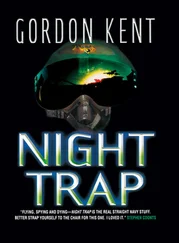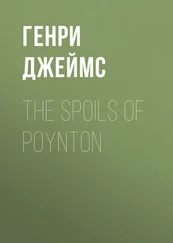When he had worked on the site, it had been easy, because he had been in Salem’s car and Salem had a work permit—bogus, in that it mis-stated Salem’s reasons for being in Gaza, but real enough and issued under the seal of the Palestinian Authority. Salem knew how to get such things.
In two hours of tired worry, Rashid concocted a simple story to cover his visit; a girl he had met in Acco, the need to see her again. True enough, if he substituted Salem for the girl. He rehearsed his story to himself, staring at his passport and his travel documents, until the bus slowed to a stop in the morning line at the border crossing. The bus was half empty. Rashid felt alone, and his anxieties were pushed into his stomach and his limbs. He had to put the passport down because it showed the trembling of his hands.
The bus inched forward in the line, surrounded by barbed wire and graffiti-covered concrete, steel reinforcement rods rusting away in long brown streaks. The stink of leaded gasoline fumes filled the air around him, came in through his open window and bit at his throat.
Before they reached the checkpoint, armed Palestinian Authority security men came on to the bus. One of them took the passenger list from the driver and read through it. Another, younger, officer checked through the documents that passengers had; passports, work permits, sometimes only letters from a possible employer and an identity card.
The man with the passenger list made a call on his cell phone. The bored young man with an AK on his back flipped through Rashid’s Israeli passport.
“Where do you live?” he asked.
“Acco.”
“Purpose of your visit?” he asked, looking carefully at Rashid’s travel documents.
Rashid hadn’t seen him ask anyone else these questions, and he started to tremble again. “I’m—I’m going to see a—girl.”
The man laughed. He was only a little older than Rashid.
Rashid relaxed a little, and then the man with the passenger list pointed at him. “Rashid Halaby?” he said.
The younger guard nodded, held up Rashid’s passport.
“Take him.”
Tel Aviv
Dressed and waiting for his wife, Alan Craik was thinking not of her but of how thoroughly their world had changed since September eleventh. He was not thinking in sequence, not being rational or logical, rather letting his mind leapfrog from idea to idea; in fact, there was no logic, only the sequence of time itself, certainly no meaning. September eleventh obsessed his world, but he was oddly not quite of it: he had been on an island in the Gulf of Oman on September eleventh, miles from a television set, and he had not seen those images as they had burned their way into the world’s consciousness. He saw them later, to be sure; he had been shocked, saddened, angered, but he had missed the raw outrage—and the fear—that had gripped so many people. The difference was that he had not seen the horror live on television:
The island was rocky scrub and sand. There were goats, lots of them, many apparently wild. People walked into and out of this landscape as if passing from another reality into his and then out again. The sky came down like gray, hot metal and the sea, a smell wherever he went, was rarely visible. He was doing the red tape on the setting-up of a Navy sonar station, a job that could have been done and done better by a lieutenant with some sonar experience, but he was out of favor at Fifth Fleet, out of favor with the new flag and the new flag captain. The flag captain had said that there was no place for him there anymore and they’d expedite a new duty station for him but they didn’t want him as their intel, didn’t want his kind, whatever that meant. But he knew what it meant: a risktaker, a man who thought that out on a limb was where intel was done best.
He was out at the site, watching the goats, the odd Bedouin. Nothing was happening. He was thinking that they didn’t need him there at all. Right at that moment, they didn’t need him anywhere. Then his cell phone rang and the world changed. It was Sully, a CIA security thug who was a bully but the right man to have if people started shooting at you. Sully pushed people around verbally by saying the things that you didn’t say when the dynamics among people were fragile or explosive—sex, politics, religion—and now he said, the very first thing he said, “Al-Qaida just re-elected George Bush to a second term.” Then he had explained that a jetliner had crashed into the World Trade Center and other passenger aircraft were missing and bad shit was going down.
The event had jerked him from the job at Fifth Fleet to one as a Temporary Additional Duty case officer at Central Command, Qatar. He had been twice to Afghanistan since then, three times to Kuwait, once to Pakistan, once to Iran, all in the four months since that remarkably, perhaps fantastically, lucky, successful, outrageous al-Qaida hit. He had gone from vengefulness to resignation, then to a kind of skeptical sadness.
“Penny?” Rose said.
He took her hand. “I was thinking that al-Qaida did things right, and we’re going to do things wrong.”
“Still chewing on it.”
“Aren’t you?”
“I don’t want to go rushing back to a squadron to throw myself at bin Laden, if that’s what you mean.”
She’d been really hurt, he knew, by bailing out of the astronaut program. The Navy had lost some of its zest for her; he thought that it was that loss that had let her get pregnant again, driven her, maybe, back on her kids and on him. “There’ll be plenty of time to go to a squadron,” he said. “Years.”
“Another war, you think?”
“Oh, yeah. Lots of them.” He stood up, kissed her. “Bin Laden has arranged our futures for us.”
“We make our own futures.” She believed in self-determination.
“I thought so until this happened, but now—” He shook his head. “I keep wanting to look up to see who’s jerking my strings.” He straightened his clothes, pulling on himself as if he were rearranging his body, and they went to the elevator. He told her, in a different, heavier voice, that he was going to run Dukas’s errand while she shopped for presents for their kids. “I’m going there now and I should be done by two, and we’ll have a late lunch and then I’ll mosey over to the embassy and arrange to have them send the stuff to Mike.”
“I want to see a movie. Let’s go to a movie.”
“In Hebrew? Anyway, I’ve seen Harry Potter as much as I can stand.”
“It might be more interesting in Hebrew.”
On the street, he warned her for the third or maybe the fifth time of what to look for to avoid car bombs; he told her to duck if anybody started shooting, because half the crowd in any given spot would be armed; he told her to be careful of the baby. She told him he was a fuss-budget and she loved him and she’d see him at two o’clock.
He was back to thinking about September eleventh. “Everybody’s scared here,” he said. “Scared people scare me.”
Naples
Mike Dukas flicked a paper across his desk to Dick Triffler. “What the hell is an Office of Information Analysis?”
Triffler studied the paper. “It’s a secret office in DoD to do an end run around the intel agencies.”
“What the hell?”
“Folks who don’t like it call it the Office of Intellectual Paralysis. Folks who do like it think it’s the latest thing in what they call ‘intelligence reform,’ which means doing the Alley Oop around worn-out old shitkickers like the CIA, the FBI, and the Naval Criminal Investigation Service. We are, and I think I quote, ‘tired, old, liberal, and nitpicking.’ It’s do-it-yourself intel.”
“How come you know all that and I don’t?”
Читать дальше












